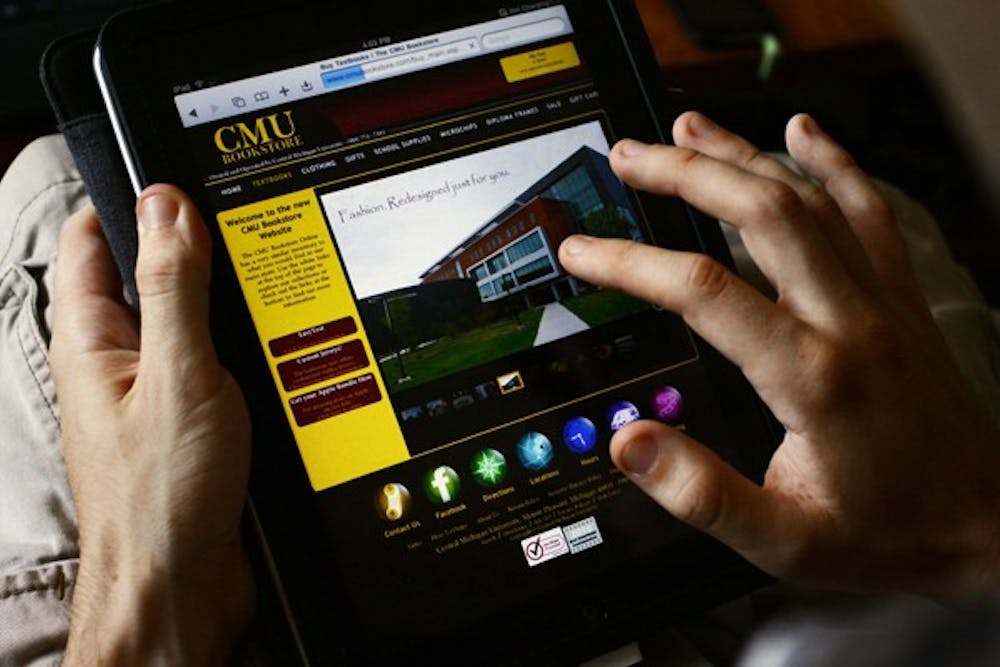E-book sales low at CMU Bookstore and SBX despite price difference from traditional books

Complaints about massive, heavy textbooks may soon be a thing of the past.
The Central Michigan University Bookstore and the Student Book Exchange are increasing the number of books they offer in electronic form.
Electronic books, or e-books, can be downloaded from the internet and used on a myriad of devices – like laptops, smartphones and Kindle or Nook e-readers – all of which are lighter and less bulky than traditional paper books.
Barry Waters, director of the CMU Bookstore, said the store offers about 500 textbooks in a digital format, which typically cost about 60 percent of a traditional textbook.
Waters said digital textbooks are becoming more popular, but sales are still far below those of physical textbooks. The store has offered digital textbooks for three years and usually only sells about ten per semester, but in the spring 2011 semester, it sold 200.
“Still, that number is less than half a percent of our physical book sales for a semester,” Waters said.
Compared to paper textbooks, 500 titles represents a limited selection, but the number of texts available is set to rise in the future.
“Textbook publishers are pushing digital (textbooks) to professors more than ever,” Waters said.
At SBX, 209 E. Bellows St., digital textbooks are being offered for the first time this semester.
“We have a database of about 1,000 books,” said store manager John Belco. “It’s more of a digital rental. Students buy a subscription that expires at the end of the semester.”
Belco said he did not have a “blanket formula” for comparing the cost of digital books to their physical counterparts as the prices are set by the e-book company.
“Personally, I still think your best bet is to buy used books and sell them back at the end of the semester,” Belco said.
Ed Hutchison, assistant professor of Broadcast and Cinematic Arts, said market size can explain the limited use of e-books on campus.
“Compared to fiction, non-fiction and other genres, I believe the textbook market is fairly small,” Hutchison said. “Why bother if the existing model is not broken?”
Holland senior Kelly McMahon has used e-books for two of her classes, PSY 337: Psychology of Advertising, and GEL 105: Dangerous Planet.
“I liked it a lot because those classes were not very difficult for me and not very textbook-heavy, so I could just go on the computer to reference them when I needed them,” she said.
Both e-books were much cheaper than the physical books, costing about one-third of what she would have paid for a normal textbook, McMahon said.
“It was really convenient not to have to carry the book around," she said. "If I had my laptop with me, which I usually do, I could have access to everything right there.”
The only drawback to the digital option, McMahon said, was she was unable to take notes in the margins of the pages. Instead, she kept her notes in a notebook, which she could go back and compare to the reading.
Neither store has noticed more e-books being offered in specific disciplines and say they cover all subjects pretty evenly.
For students who still prefer to have a physical page they can highlight and take notes on by hand, Waters and Belco said both stores offer hard copies of all the digital textbooks as well and both offer a textbook rental program.
- CM Life reporter Chad Mitchell contributed to this article.



